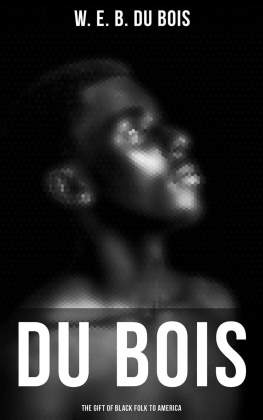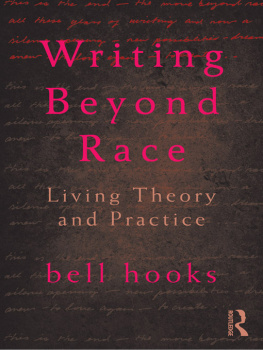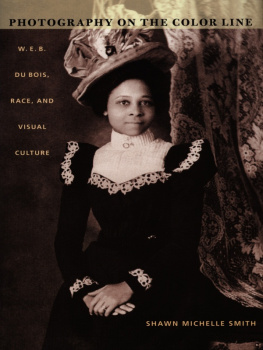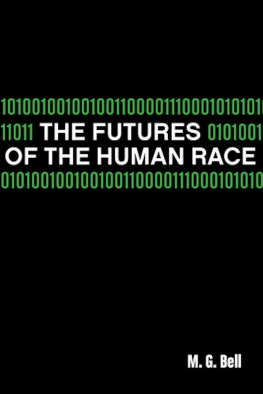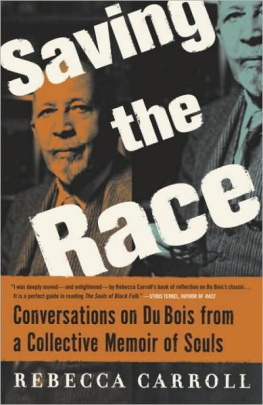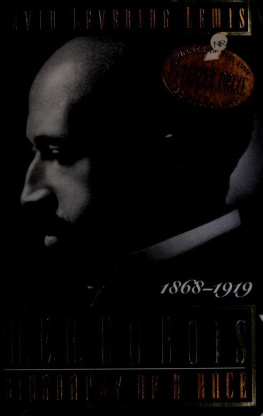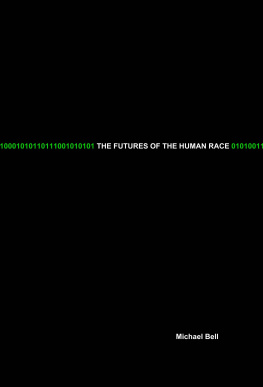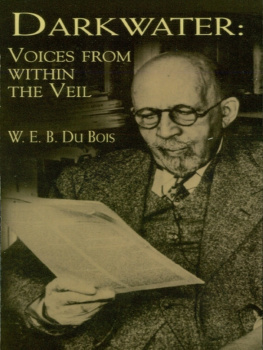W. E. B. Du Bois
on Race and Culture |
W. E. B. Du Bois
on Race and Culture |
Philosophy, Politics,
and Poetics |
Edited by
Bernard W. Bell,
Emily Grosholz,
and James B. Stewart
First published 1996 by Routledge
Published 2013 by Routledge
2 Park Square, Milton Park, Abingdon, Oxon OX14 4RN
711 Third Avenue, New York, NY, 10017, USA
Routledge is an imprint of the Taylor & Francis Group, an informa business
Copyright 1996 by Routledge
Design and typography: Jack Donner
All rights reserved. No part of this book may be reprinted or reproduced or utilized in any form or by any electronic, mechanical, or other means, now known or hereafter invented, including photocopying and recording, or in any information storage or retrieval system without permission in writing from the publishers.
Library of Congress Cataloging-in-Publication Data
W. E. B. Du Bois on Race and Culture edited by Bernard Bell, Emily Grosholz, and James Stewart
p. cm.
Includes bibliographical references and index.
1. Du Bois, W. E. B. (William Edward Burghardt), 18681963Philosophy. 2. Race. 3. Race relations. 4. Pluralism (Social sciences) 5. Minority womensocial conditions. 6. Pan-Africanism. I. Bell, Bernard W. II. Grosholz, Emily, 1950 . III. Stewart, James B. (James Benjamin), 1947 .
E185.97.D73C76 1996
305.8960730092dc20
9552028
CIP
ISBN 13: 978-0-415-91556-4 (hbk)
ISBN 13: 978-0-415-91557-1 (pbk)
In Defense of W. E. B. Du Bois
Lucius Outlaw, Haverford College
Robert Gooding-Williams, Amherst College
Bernard R. Boxill, University of North Carolina at Chapel Hill
Bernard W. Bell, The Pennsylvania State University
African-American Women, Social Change, and the Sociology of W. E. B. Du Bois
Cheryl Townsend Gilkes, Colby College
Joy James, University of Massachusetts at Amherst
Dark Princess
Arnold Rampersad, Princeton University
Emily R. Grosholz, The Pennsylvania State University
Manning Marable, Columbia University
Du Bois, Nkrumah, and the Foundations of Pan-Africanism
Segun Gbadegesin, Howard University
The Afrocentrism of W. E. B. Du Bois
Wilson J. Moses, The Pennsylvania State University
W. E. B. Du Boiss Theory of Social and Cultural Dynamics James B. Stewart, The Pennsylvania State University
W. E. B. Du Bois, Race, and the Making of American Studies
Arnold Rampersad, Princeton University
This volume is dedicated especially to all who have labored to understand the interplay of race and culture and have drawn particular inspiration from the life and writings of W. E. B. Du Bois. The genesis of this collection was a conference entitled The Thought of W. E. B. Du Bois, held at the University Park campus of Penn State University in March 1992. For us, the editors, the generous support provided by the Departments of African and African American Studies, English, History, Philosophy, Political Science and Speech Communication, as well as the College of the Liberal Arts, the Equal Opportunity Planning Committee, the Institute for the Arts and Humanistic Studies, the Office of Research and the Graduate School, the Office of Undergraduate Education, the Paul Robeson Cultural Center and the Rare Books Room confirmed the potential importance of developing a monograph to explore further the contours of Du Boiss thinking on race and culture.
A project of this magnitude could not have been completed without the dedicated assistance of many individuals. The support of the clerical and technical staff of the Departments of English and Philosophy and the Office of Educational Equity proved invaluable. Special thanks is due to Jody Auman and Missy Price in the Department of English and Beth Ondo in the Department of Philosophy. Top quality research assistance is always a critical ingredient in the success of any major publication venture. Susan Searls, Carol Davenport, and Carolyn Carey not only rendered highly professional research support, they also willingly undertook the massive task of copy editing the galley proofs. Finally, our editor, Maureen MacGrogan, has been helpful throughout the process as have several other members of the Routledge organization.
Each of the editors has received special inspiration and support from family and friends. Bernard Bell recognizes the inspiration and support of his sister, Gwendolyn Bell, and that neither this nor any other of his scholarly efforts would have been possible without the loving sacrifices and support of his wife, Carrie. Emily Grosholz acknowledges the support and encouragement of her husband, Robert Edwards, and their children Benjamin, Robert, William Jules-Yves and Mary-Frances. For James Stewart, the opportunity to experience and observe the efforts of his three daughters Talibah, Lorin, and Jaliya to develop their own individual identities in a world where the color line still conditions human interaction has been a special inspiration.
The raging ethnic conflicts and genocidal wars in the former Union of Soviet Socialist Republics and the former Yugoslavia, as well as in South Africa, India, Sri Lanka, and Burundi, justify the reexamination by contemporary scholars of the prophetic voice of W. E. B. Du Bois. His prophecy that the problem of the twentieth century is the problem of the color line,the relation of the darker to the lighter races of men in Asia and Africa, in America and the islands of the sea, has in large part been fulfilled. Also, the correlative problem of double-consciousness, the struggle of peoples to reconcile the tension between their national or political and ethnic or cultural identities, has become a major problem in the emerging new world order. Contemporary dialogue in the academy and media concerning the increasing educational, political, and philosophical influence throughout the American educational system of multiculturalism in general, and of Afrocentrism in particular, also often refers to the provocative ideas of W. E. B. Du Bois on race and culture. In this context, Emily Grosholz convened a conference at The Pennsylvania State University in 1992 on The Thought of W. E. B. Du Bois.
A product of that conference, this collection of essays is a multivocal response to the politics, philosophy, and rhetoric of W. E. B. Du Boiss social construction of race. The four essays in the first section, The Question of Race, appropriately begin the examination of what Du Bois called the problem of the color line by focusing on the evolution of his ideas on race and culture. Each of these essays includes a close reading of the definition of race in The Conservation of Races, an explanation of the relationship of race, culture, and history, and a response to controversial readings of Du Boiss concept of race, especially that of Kwame Anthony Appiah. The complementary essays by Lucius Outlaw and Bernard Boxill directly contest Appiahs readings, whereas the essay by Robert Gooding-Williams contests Outlaws and Appiahs responses to Du Bois. And Bernard Bells essay takes off from Appiahs account, before analyzing the evolution of Du Boiss rhetorical use of the racial and cultural sign of double-consciousness in his earliest unpublished and published fiction.




